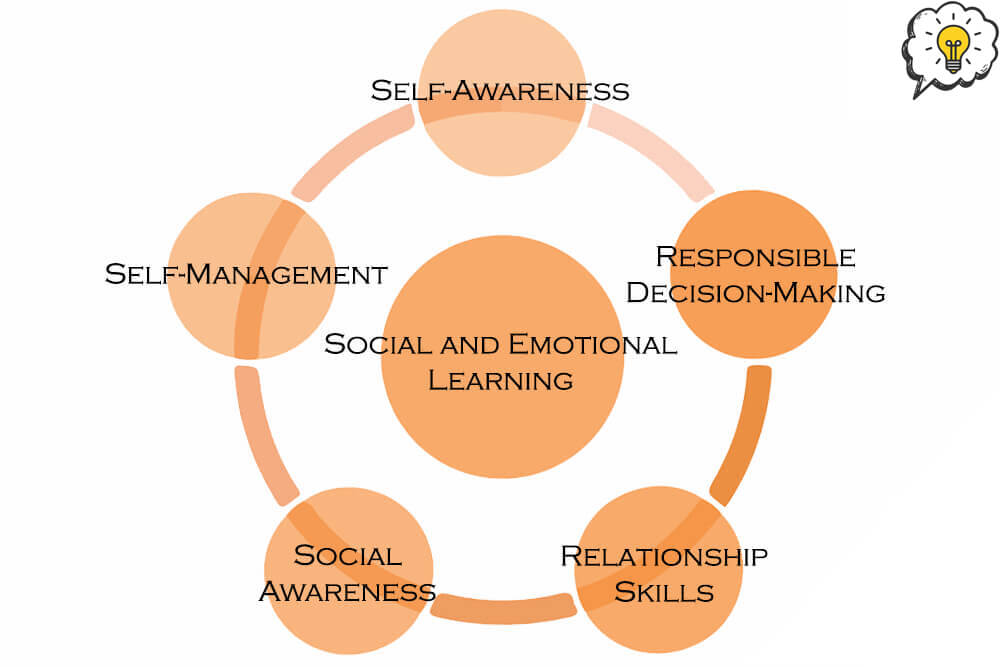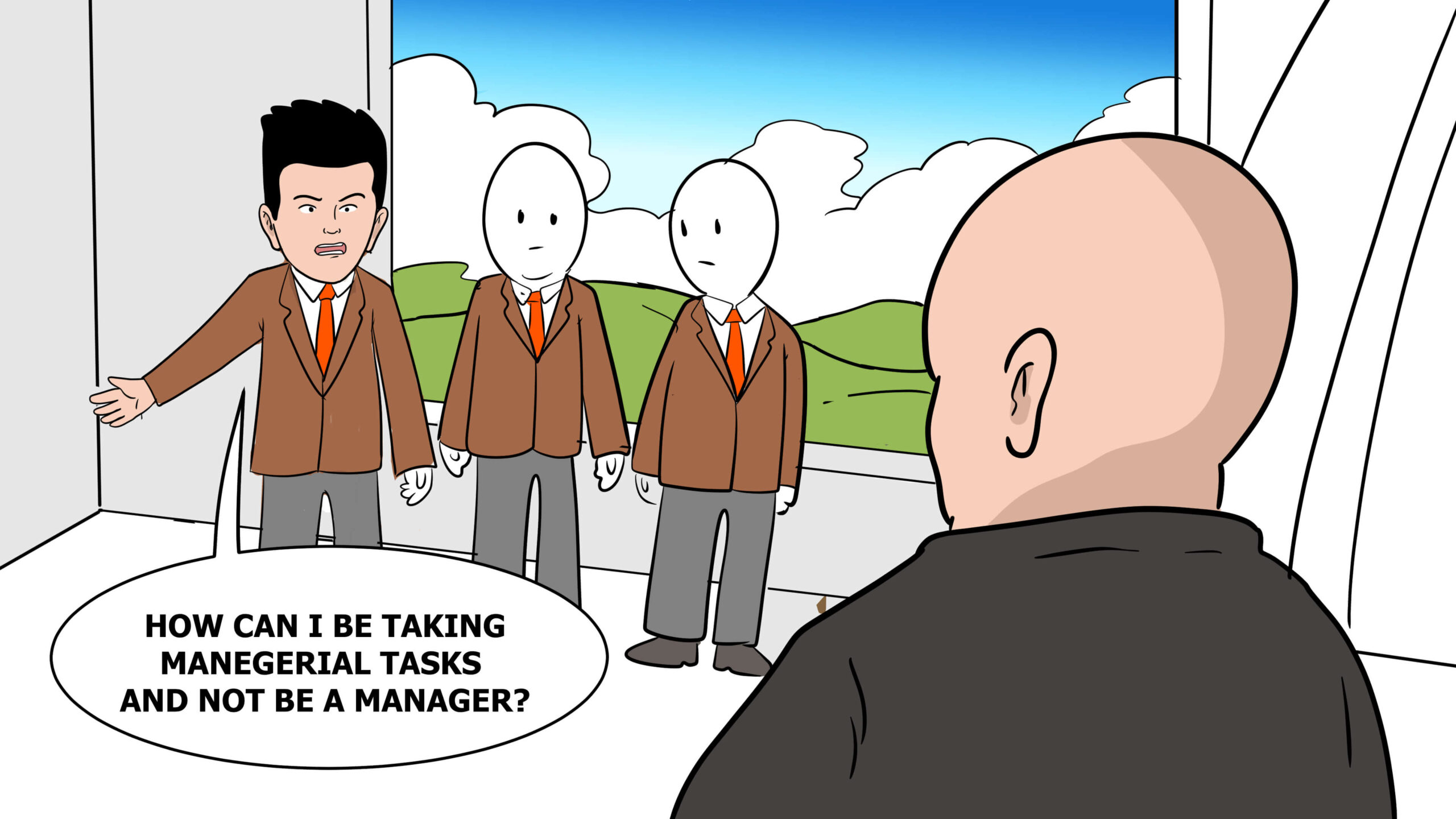What is Social and Emotional Learning (SEL)?
The process by which learners acquire and apply the knowledge, skills and attitudes needed to be socially and emotionally competent is Social and Emotional Learning (SEL). Emotional Intelligence (EQ) can be linked to, or subset to, Social and Emotional Learning, where Social and Emotional Learning is more specific and measurable. This process of learning is most efficient when it starts early and continues through high school. It can be considered as critical as doing math or reading. Social emotional skills are the essential skills towards success in school, work and life.
SEL helps us to control our own emotions and actions, have empathy and show compassion for others, fix problems effectively, make good decisions and develop healthier relationships. We learn to understand what is happening within us and to be aware of our emotions. That helps to deal with strong emotions and impulsive behaviours. There are Five SEL core competencies.
The 5 Social Emotional Learning (SEL) Core Competencies

Self-Awareness: The ability to understand your feelings and perceptions correctly and to know how they affect your actions.
Knowing what we are feeling in the moment, having a realistic assessment of our own abilities and a well-grounded sense of confidence.
Self-Management: The ability to self-motivate, effectively manage one’s feelings and regulate one’s emotions under different circumstances.
Handing our emotions, therefore, facilitate rather than interfere with the task at hand; being conscientious and delaying gratification to pursue goals; persevering in the face of setbacks and frustrations.
Social Awareness: The ability to look at others and to empathize with others from different backgrounds and cultures.
Sensing what others are feeling; being able to take their perspective; appreciating and interacting positively with diverse group.
Relationship Skills: The ability to establish and sustain a positive and meaningful relationship with diverse peoples and cultures.
Handing emotions in relationship effectively; establishing and maintaining healthy and rewarding relationships based on cooperation; resisting inappropriate social pressure; negotiating solutions to conflicts; seeking help when needed.
Responsible Decision-Making: The ability to make informed decisions based on constructive and respectful evaluation of personal conduct and social interactions.
Accurately assessing risks; making decisions based on a consideration of all relevant factors and the likely consequences of alternative courses of action; respecting others; taking personal responsibility for one’s decisions.
Why it matters?
An article by Inc. Magazine showing the top 10 skills that will land you high-paying jobs by 2020, according to the World Economic Forum.
1. Complex problem-solving
2. Critical thinking
3. Creativity
4. People management
5. Coordinating with others
6. Emotional intelligence
7. Judgment and decision-making
8. Service orientation
9. Negotiation skills
10. Cognitive flexibility
How many of these skills are related to SEL? The answer is all of them. It’s necessary to develop one’s SEL, whether you’re trying to hire someone or want to get that high-paying career.
How do we improve Social and Emotional Learning (SEL)?
SEL is beginning to be integrated into schools. Social and Emotional Learning (SEL) refers to the soft skills needed for the personal and social well-being of a child. Having high social-emotional competencies will boost one’s success. There’s a popular Chinese proverb that says: “The best time to plant a tree was 20 years ago. The second-best time is now.” Here are some things we can do to improve our Social and Emotional Learning.
Do daily greetings. Children and adults need engagement! Starting the morning with a daily greeting is an optimistic and easy technique. Greetings to all that you’ve come across. Greetings can also be virtual.
Do self-reflection. Reflect on our own progress upon completing a task, evaluation, project, or assignment, helps to improve our SEL skill.
Create SMART goals. A good way to help us control over what we want to accomplish in life.
Talk about emotion management. No matter what age, all children and adults need to manage their feelings with practice. We ought to be open on how to cope with emotions and how to strengthen them. Remember to use positive self-talk when you are feeling nervous, it can be for upcoming presentation or assessment.
Foster positive thoughts. Positive thoughts reassure and encourage our minds. It enables us to control our emotions so that we can deal appropriately with issues.
Learn to manage stress. We all experience stress even when we don’t realize it. Understand the activities that we can use when we feel overwhelmed. It’s effective to use these skills in the moment especially when we’re struggling with emotions.
Learn active listening skills. It is beneficial to develop good active communication skills, whether we’re working with a partner or just talking to a friend.
Taking responsibilities. Taking on obligations and jobs helps build our sense of self-worth and sends a message that we are all part of a larger community. It’s important that everyone has some type of responsibility, it can just be something minor.
Have a culture diversity. Spend time discussing and learning about individuals from various cultures, backgrounds, and levels of ability. We are part of a larger community within our countries and world. Understanding culture diversity will help cultivate tolerance, acceptance, and inclusion for everyone.
Practice problem-solving skills. If someone has an issue or challenge to overcome, avoid solving it for them right away. Encourage individuals to think out of a box and how their problem could otherwise be solved.
Practice respectfully disagreeing. People sometimes disagree, so learning how to disagree respectfully is a critical skill. This can be done physically or even digitally online!
Practice a growth mindset. The adoption of a growth mindset helps us to learn that we can achieve our goals with hard work, good strategies, and persistence over time. We feel that sometimes we are just not as smart as others. This mentality can be detrimental to our growth, so spending time embracing a growth mentality is worthwhile.
Build a teamwork culture. For tasks and duties, people need to work in wider teams to get the job done. Teach people to delegate various roles to each other while operating as a team, so that both parties have essential commitments.
This is going to help us understand ourselves better. Insufficient self-knowledge can lead us to change jobs on a regular basis, to unemployment or make indecisive decisions.









Leave a Reply